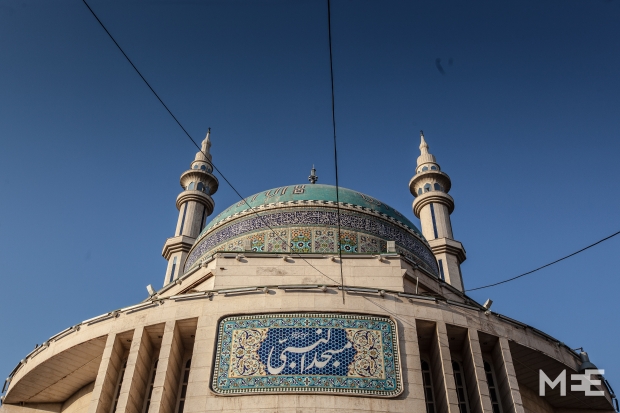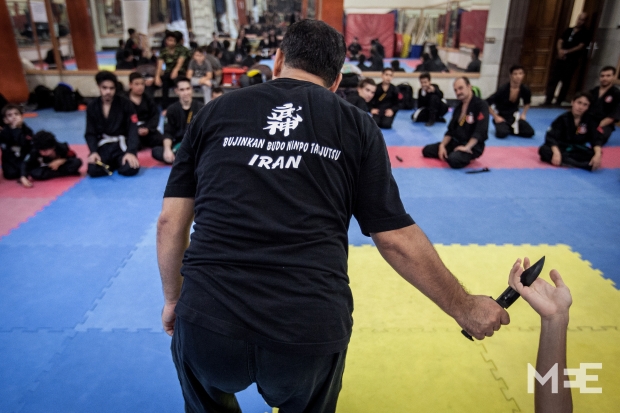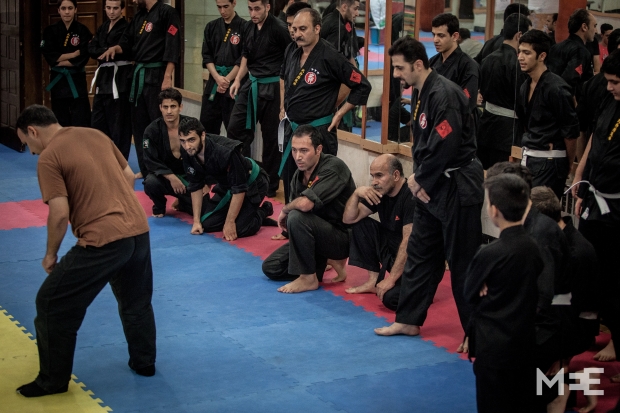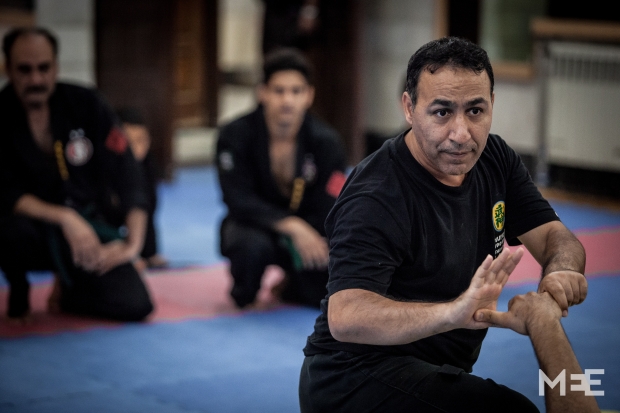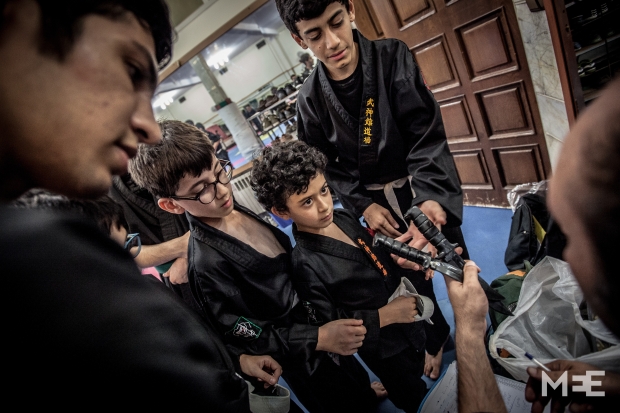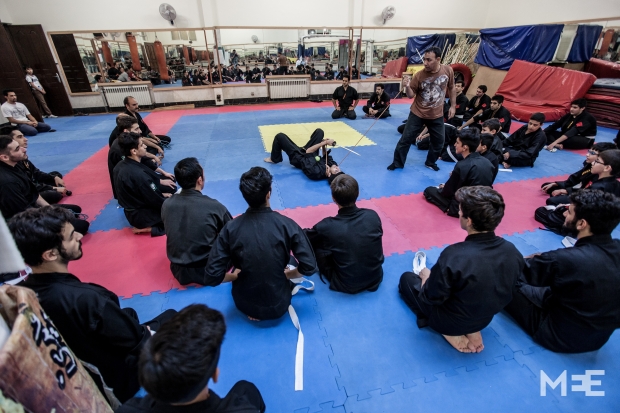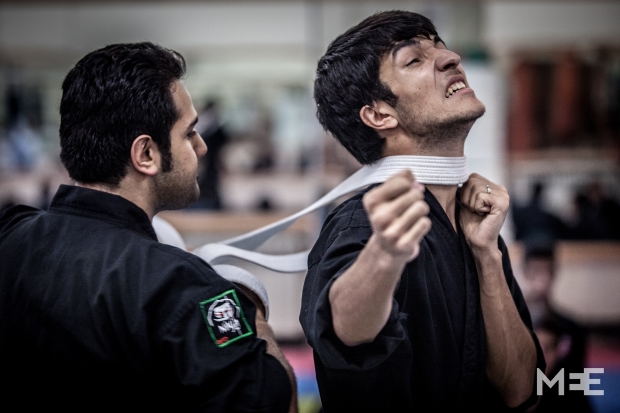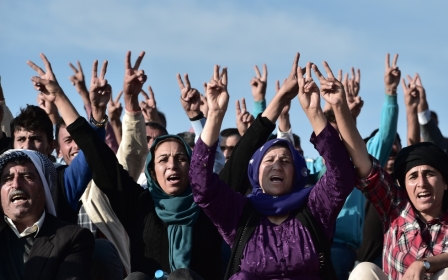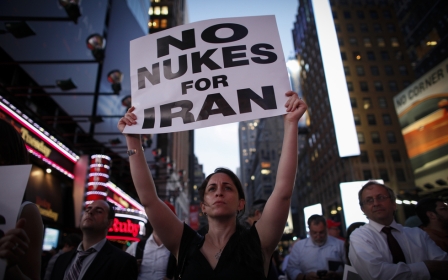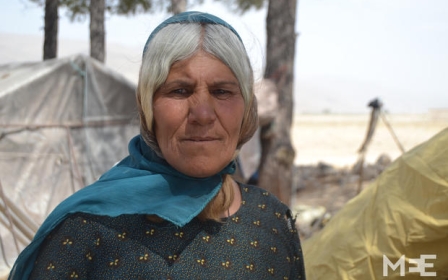Beneath a Tehran mosque, ninjas advocate non-violence
TEHRAN - In the corner of an alley in the wealthy northern suburbs of Tehran, Iran, a building offers a surprising sight. Between posh villas and Western-style restaurants sits the Shia Mosque Alnabi.
In the first-floor prayer hall, in a room dedicated to teaching Islamic studies, Mullah Hassan Hossein advocates a message of peace.
Meanwhile, in the building's basement, the Ninja Club's students sound the command to begin training: "Hajime!"
Master Faraji, the club's instructor, shares with the Iranian ninjas the benefits of mutual respect and physical activities.
Although contiguous, those who use the prayer hall and those who use the basement do not really have any communication between them, nor do they have any particular need to. "Doors separate us," says Faraji. Without any kind of discussion between them, the two different worlds nevertheless share one space and one core common value: non-violence.
It is widely believed that ninjas can trace their origins as far back as the 12th century in Japan. Relentlessly trained in the art of non-conventional warfare, and shrouded in mystery, they belong to a class comparable to that of the Samurais.
Initially trained to act as spies and mercenaries in feudal Japan, ninjas saw their status and skills evolve over the centuries and develop in light of societal changes. Although their particular skill set was formerly used specifically for combat, the discipline in its modern form is "not to be reproduced outside," insists Faraji.
It's a martial art that is "not a sport". Faraji explains that today the ninja discipline is taught all around the world under the name of "ninjutsu". The term describes a state of mind which requires a person "to make one's brain speak for them, rather than just one's physical strength".
In Tehran, the weekly lessons consist mainly of gaining the knowledge needed to control one's own body as well as developing techniques for escape and self-defence.
Away from the scorching summer heat in the room below the Alnabi Mosque, there are about 30 men (women are trained separately as per Iranian law) who meet three times a week to practice an art that Amir, one of the students, said he discovered "through the Batman movies".
As for Ashkan, he explains that he wanted to develop himself "through a martial art" and thought that "ninjutsu was a good mix of all the martial arts". He joined the Ninja Club. "That was two years ago and here I am!"
A member of the club for the last three years, Shahrukh reminds the group of the golden rule of the Iranian ninjas: "When a fight is on the horizon, the first thing to do it is to run away."
As the Quran exhorts, "If you should raise your hand against me to kill me, I shall not raise my hand against you to kill you. Indeed, I fear Allah, Lord of the worlds." (Surah 5:28).
The ninjutsu class now over, students spill back into the street outside the mosque. In a country like Iran where sports and religion sometimes seem to clash, Mullah Hassan Hossein, the leader of the Alnabi Mosque, talks about sports with careful words. He starts with the Islamic necessity of "developing one's body and soul". Upon the mention of the Ninja Club in session below his feet, where women are now practicing the martial art, he consents to the practice and says he "has respect for them".
Mullah Hossein now gets ready to lead the afternoon prayer. He bows out and shares one last thought: "All that you see about Islam on television is not Islam. ISIS [the Islamic State group] is not Islam."
Islam is a multi-faceted and multi-dimensional way of life, and even in a country like Iran, which is so often perceived as one monolithic block, there is more to the practice than meets the eye.
(Additional reporting by Kévin Miller)
New MEE newsletter: Jerusalem Dispatch
Sign up to get the latest insights and analysis on Israel-Palestine, alongside Turkey Unpacked and other MEE newsletters
Middle East Eye delivers independent and unrivalled coverage and analysis of the Middle East, North Africa and beyond. To learn more about republishing this content and the associated fees, please fill out this form. More about MEE can be found here.


